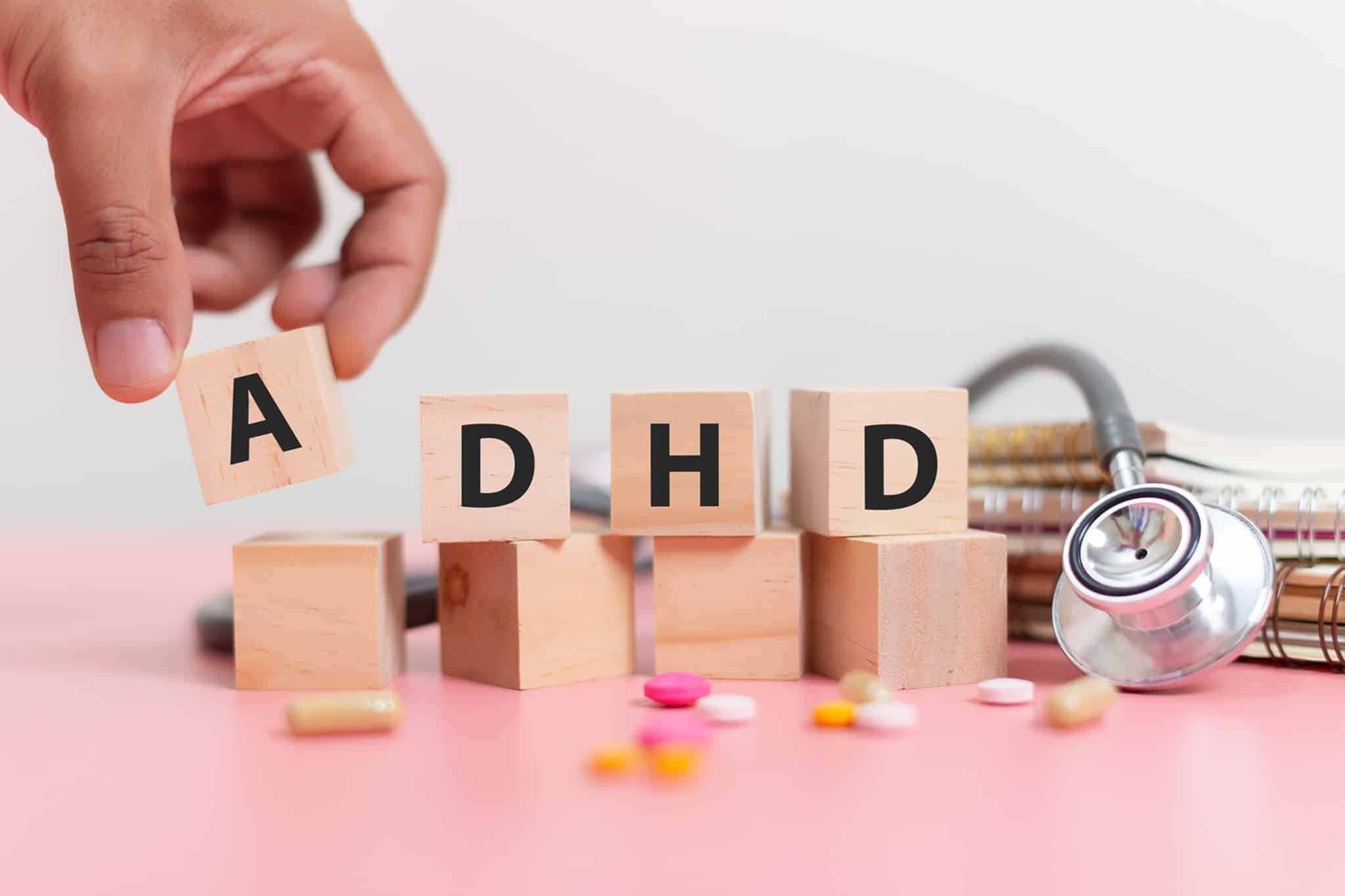Depression treatment is more than medication or counseling. The kitchen could be an important role in recovery. Making meals with ingredients that have nutrients provides the body and the brain with what it needs to perform better. A daily kitchen habit can provide a routine or mastery over something, which can be lacking with depression.
Research continues to accumulate suggesting that if we eat better quality foods to increase micronutrients, we can expect to receive mental health services. It even seems that unhealthy diets lead to poorer mental health outcomes. Nutrition and mental health outcomes seem to be bi-directional – meaning the food we put in our bodies not only impacts our mental health, but our mental health status will also impact how well we eat and what we eat.
How Mental Health and Nutrition Work Together in Depression Treatment
This month, the American Psychiatric Association (APA) and the American Society for Nutrition (ASN) are recognizing Mental Health Awareness Month with materials on how nutrition and mental health are linked. In a recent poll conducted by the APA, 81% of adults are willing to make changes in their diets to improve their mental health.
When undertaking treatment for depression, creating healthy habits in the kitchen can be a support for your healing. Whether you are navigating treatments for major depression or exploring options under treatment resistant depression, small food choices can have an impact.
And for those seeking depression psychiatry treatment in McKinney or elsewhere, nutritional care complements professional help. If you’re working on your depression treatment or navigating symptoms of depression, your kitchen can be more than a place to cook. It can be your foundation for healing.
Nutrition as a Daily Mental Health Tool
Brain-Fueling Foods to Add Today
There are foods that are high in nutrients to work for your brain health. Omega-3’s are in fatty fish, walnuts, flaxseeds and more that lessens inflammation. Leafy greens, beans, lentils, and everything in between are rich in folate associated with decreased depression rates in high folate areas.
Adding foods like these to your meals is a sensible step in the right direction for mental depression. While it definitely does not act as a replacement for medical treatment or someone that can really help you, it certainly compliments them. Think of it as yourself being revitalized from the inside out.
Avoid the Energy Drains
Eating sugary snacks, highly processed meals, caffeinated overloads, can cause momentary elevation in energy levels but deplete mood levels after shortly. These foods may provide you with moments of energy and happiness, however, they often leave your body with higher degrees of stress and substantially lower mood levels later.
Rather, if you have the tools available in your kitchen, consider preparing your meals ahead of time using whole grains, lean sources of proteins and healthy fats. In that way, you will create a food group balance amongst whole foods – that also compliments what helps balance your blood sugars and keeps your mind calm and focused.
Creating a Kitchen Routine That Supports Healing
Daily Habits That Empower Recovery
Set aside a certain time every day to prepare food. This does not need to be complicated. Just chopping up vegetables or boiling water for tea can create a grounding ritual. Having daily kitchen practice can help cull down overwhelm and build self-assurance.
If you are in treatment for severe depression or major depression, creating a timeframe like this can act as a soft anchor in the storm. If you are in treatment resistant depression stages, there can be even greater gains from smaller things in the kitchen. It can feel like a control, small yet progressive, so maintaining motivation matters.
Plan, Prep, and Celebrate
Planning meals in advance not only helps save time, it can also reduce daily decision fatigue. When you already know what you’ll eat, you reduce mental load and open up more space for healing.
Keep things simple. Use a whiteboard or journal to write down meals for the week. Celebrate small wins like making your own breakfast or drinking enough water. These little victories can help shift your mindset.
Cooking as a Form of Self-Therapy
Mindful Cooking for Mental Clarity
When you slow down and cook mindfully, your nervous system calms. Cooking becomes more than a chore; it becomes a break from racing thoughts. Focus on the sounds, colors, and textures of the process.
For individuals exploring treatment for depression, especially those not ready for medication or therapy, mindful cooking can be a soft entry into self-care.
Involve Your Support System
Invite someone over to cook with you or share a recipe. Depression often leads to isolation. Using your kitchen as a gathering space can help rebuild lost connections.
If you’re enrolled in a depression treatment center, ask your care team if you can implement small cooking tasks into your day. These acts of normalcy help you regain control.
What to Stock in a Healing Kitchen
Your Pantry and Fridge Can Be a Form of Treatment
Here are items to include:
- Whole grains (brown rice, oats, quinoa)
- Legumes (chickpeas, lentils, black beans)
- Healthy fats (avocados, olive oil, flaxseeds)
- Protein (eggs, lean meats, tofu)
- Fermented foods (yogurt, kimchi, kefir)
- Leafy greens (spinach, kale, arugula)
- Fresh fruit (berries, oranges, bananas)
These aren’t miracle cures, but when combined with the best treatment for depression, they become part of a holistic healing plan.
Make the Kitchen a Safe, Positive Space
Light a candle. Play music. Decorate your space. These may seem small, but creating a pleasant cooking environment matters. It can shift your view of eating and healing.
If you’re working with a provider or depression psychiatry treatment in McKinney, talk to them about how to incorporate food as part of your wellness plan.
Addressing Barriers in Mental Depression Treatment
When Cooking Feels Like Too Much
There are days when just getting out of bed feels impossible. That’s okay. Depression is real, and so are its weighty symptoms. In these moments, simplify.
Keep frozen vegetables, canned beans, and pre-cooked rice on hand. These ingredients are easy to put together when energy is low. Don’t beat yourself up, small steps matter.
Financial and Cultural Considerations
Healthy food doesn’t have to be expensive. Canned salmon, seasonal veggies, and dry beans are budget-friendly and nourishing. For those from culturally diverse backgrounds, incorporate traditional meals that bring comfort and healing.
If you’re exploring treatments of depression and anxiety, know that food security and cultural foods can and should be included in your plan. A good depression treatment center will understand this and support inclusive strategies.
Final Thoughts: Hope Is Still on the Menu
Rather than a single, universal way to treat depression, some people need medication or therapy, while others might work first on changing their routine in small ways, such as meal prepping or drinking adequate amounts of water.
The most important part is this, you have options. Your kitchen is one of them. It is the place for nourishment, caring, and empowerment. When paired with significant depression treatment or when it is used to augment treatment resistant depression, it can be empowering.
If you are looking for depression psychiatry services in McKinney or any other part of the world, take the time to talk with your care provider about how food and routines can help support your journey.
How MindVibe Makes a Difference
We understand that healing is multifaceted. Whether you’re navigating treatment resistant depression or beginning your first conversation with a mental health professional, our integrated approach empowers you to thrive. Through evidence-based care, nutrition support, and access to compassionate experts, MindVibe helps you build a recovery plan that fits your life.
Explore how MindVibe’s mental health services go beyond symptom management to support true transformation.
FAQs
Can fast food cause depression?
Frequent fast food intake has been linked to a higher risk of depression in several studies.
Is it a mental illness to eat fast food when overweight?
No, but emotional eating or compulsive patterns may signal underlying mental health conditions.
Can a low-calorie diet affect your mood?
Yes, overly restrictive diets can lead to mood swings, fatigue, and worsen depressive symptoms.
What foods help improve symptoms of depression?
Foods rich in omega-3s, fiber, B vitamins, and antioxidants support brain health and mood.
Is cooking really part of mental health recovery?
Yes, many therapists and health professionals recommend cooking as a form of mindful self-care.






